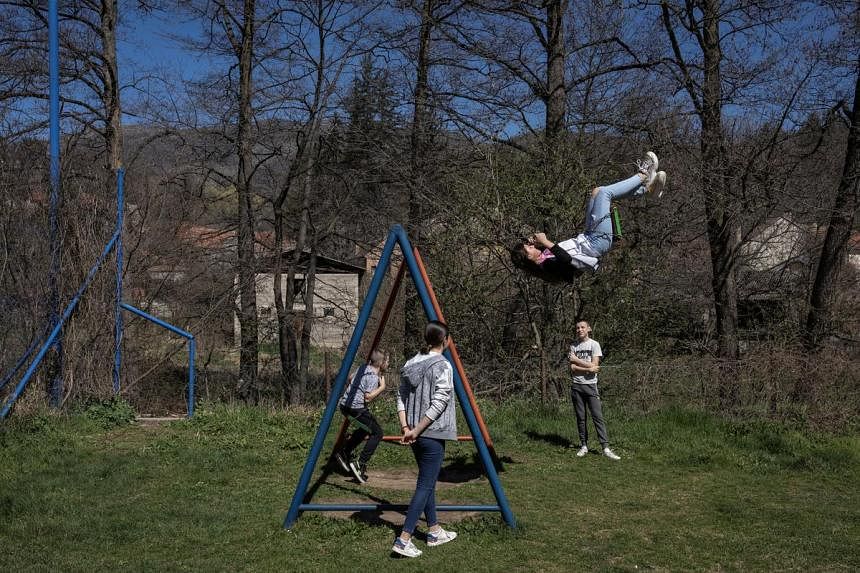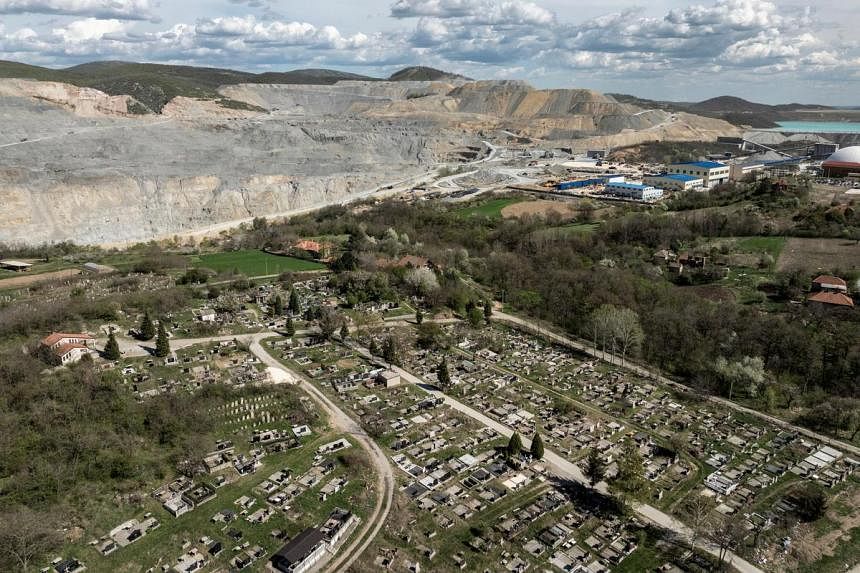KRIVELJ, Serbia - Before dawn, 78-year-old Vukosava Radivojevic prepared breakfast for her husband then walked into her village in eastern Serbia to guard a barricade stopping trucks entering an open-pit copper mine that residents say is contaminating local land and water.
Radivojevic is one of two dozen women who since January took shifts day and night on a small bridge in Krivelj to protest against the mine, run by a subsidiary of China's Zijin Mining, that dominates the surrounding countryside and encroaches on their homes.
While their husbands work, the women are fighting to persuade the company to relocate their village away from what they describe as the incessant din, shaking and pollution.
Zijin has already relocated many of the villagers. But the majority of those who remain are Vlachs - Orthodox Christians who have preserved their own language and customs through centuries. They want to move as one.
"We are forced to block the road, because we are poisoned, everything is polluted, we can't grow vegetables anymore," Radivojevic said this month as she stood at the blockade.
"We just want to be safe, we earned that right."
Zijin's subsidiary, Serbia Zijin Copper, acknowledged the problems, which it said it inherited from a local company when it took over operations in 2018.
According to a study commissioned by the company and published in December, Krivelj's small river is polluted with heavy metals. Increased quantities of lead, arsenic and cadmium were found in the soil.
"The site suffered from severe direct emissions of gases and wastewater, resulting in highly polluted surroundings including air, rivers, and soil," the company said in a statement to Reuters.
It said it has invested over $100 million to reduce the environmental impact, including improving wastewater recycling.
Zijin stated it is "dedicated to formulating relocation plans with transparency and fairness" and is in contact with all parties involved. A local official said they hoped the move would be done by the end of 2025.
This week, Zijin agreed to stop driving large trucks through the village, community leader Jasna Tomic said, in a sign the women have had some success. Residents temporarily lifted the blockade to allow the company to complete some work.
The fight for a satisfactory relocation continues.
TAKING A STAND
Krivelj used to be a lively village surrounded by green hills. Every year it hosted a fair that attracted visitors from neighbouring villages.
Then mining began in the 1970s, when Serbia was still part of Yugoslavia. The concentration of sulphur dioxide in the air became so high that it burned holes in women's nylon tights, locals said.
Standards have since improved, but production has quadrupled since Zijin took over, meaning more trucks and more dust, the residents said.
The landscape is scarred by piles of mine waste. Lines of orange trucks snake up the brown valley. The walls of houses are cracked from tremors caused by underground explosions, residents said.
The number of school children has dropped by two-thirds, retired teacher Aleksa Radonjic said, as young families have moved away. The fair stopped years ago.
The barricade, erected in January, became a symbol of Krivelj's defiance. Over time it turned into a second home for the women: the inside was heated by a wood stove and had a television. Neighbours stopped by with snacks and coffee. Sometimes dogs kept them company.
"One day I was standing in the centre of the village, and I kept seeing truck after truck driving through. The small bridge was swinging under their weight," Radivojevic said.
"And then I told my granddaughter, something needs to be done."
Housewife Marija Bufanovic, 53, was among the first to build the barricade.
"There is no life here," she said. "We want to move together."
Meanwhile, villagers discuss where they may end up. The company has proposed an area near another Zijin mine, said community leader Tomic.
"We want that new village to be called Krivelj as well. Of course there will be no river there, but we want to move the church, the library and the school." REUTERS































